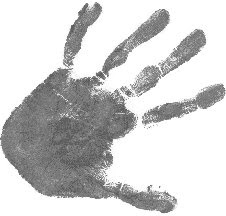clinically speaking ...
I’ve met some rather cold people in my time. In fact, if the temperature of their soul could be measured, they would be labeled clinically dead.
To go through life well means to avoid placing your needs over the needs of others, even to your detriment. I don’t use “detriment” lightly. I am thinking of the interplay of needs and desires. If you want to live as you should, you place both your needs and your desires below those of others.
Here’s a chart to help you understand:
Notice the duality of your needs and desires being below those of the other person. Not even what you perceive to be your need rises above what you perceive to be in conflict with the other’s “mere desire.”
This applies likewise in the negative. I should do another chart to be clear, but I am hoping that the reader can get by with one visual. By the negative, I mean that your perceived or actual need cannot run afoul of the other person’s desire not to be subjected to your perceived or actual need.
There is actually a very real consequence to ignoring these very basic rules. In human interaction, it is alienation, loss of love (if it existed), and resentment. The damage to the aggrieved is even worse: feelings of powerlessness, helplessness, and trauma.
I have watched people rationalize their actions of placing their needs or desires over those of others. I have heard the argument, “it is a matter of right. I can do this because I am allowed to.” “Allowed to?” Ignoring the impact on others? “Allowed to?” Watching another suffer because you have the “right”?
I have the right to many things in this world. I have the right to practice law, but I chose not to because I find that it makes me feel dirty. Doesn’t matter how much joy I would get out of the income or the thrill of talking to a jury or wiping up the floor with some punk-ass opposing expert. It makes me feel dirty. The gratification I get is hollow. I chose to honor the profession by training others in how to do it well, but I stay out of it. I don’t like feeling dirty. I don’t making others feel dirty.
I don’t do things against another’s will, be that grounded in their needs or desires. It makes me feel dirty.
But I have watched many people live contrary to this basic precept. I have heard those same people say later in the game, with the greatest look of astonishment, “I didn’t know.” To which the rejoinder comes, “You didn’t want to.”
I often think of animals when I look at the actions of humans. Why would someone act so deliberately contrary to human norms in the name of “right” or “I didn’t know”? We are a higher-life form, after all.
Consider personalities.
Markings on animals do not alter over time. Personalities embodied therein do not morph into something inapposite of where they began. Changes that do occur are gradual, can be traced to their previous state, and rarely wander far from their origins.
If an animal is mean-spirited or passive, self-serving or supportive, takes flight at danger or stands ground, either because it always was or because of some formative event early its life, it will remain that way its entire existence. The only change is not a change at all, but an evolution: the animal will experience decreasing energy as life extracts its pennyweight or there will be an increase in guile. Both lead to the same place: the animal will choose its timing with more circumspection.
Any material change will be only by the greatest force of will, and will dissipate rapidly over time. It matters not how important or deeply held the impetus. Change is foreign and uncomfortable. Animals always return to their origins. Always.
Consider an animal that stalks to achieve comfort, compelling others to do its will only after it has cornered them. If the stalked revolt, the stalker will change tactics. But therein lies the first lesson: the tactic changed, not the strategy or the goal. The goal remains the same, which is achieving comfort. The goal never altered to be the one giving comfort. That is foreign. That is not within the stalker’s ability.
If the stalker does change to giving comfort, it will soon grow weary without its own needs being tended. It will wonder why it is not at least treated equally, that is, why its needs aren’t being tended. Therein lies the second lesson: see how quickly the changed role becomes uncomfortable, how quickly change again is sought?
Animals do not change. They are cast in a mold. They exhibit changes only as a shift in tactics. They will always seek that which they have always sought.
Humans, in these ways, are no different than animals.
I suggest that to be a human is of a higher order than being an animal, yet most of us blow past the distinction when it comes to satisfying our needs or desires. We follow our own personality, room temperature or lower.
The difference between humans and animals is supposed to be our capacity to reflect. Reflection requires understanding someone else’s needs and desires, and changing our behavior based upon those things.
Oh well.














No comments:
Post a Comment